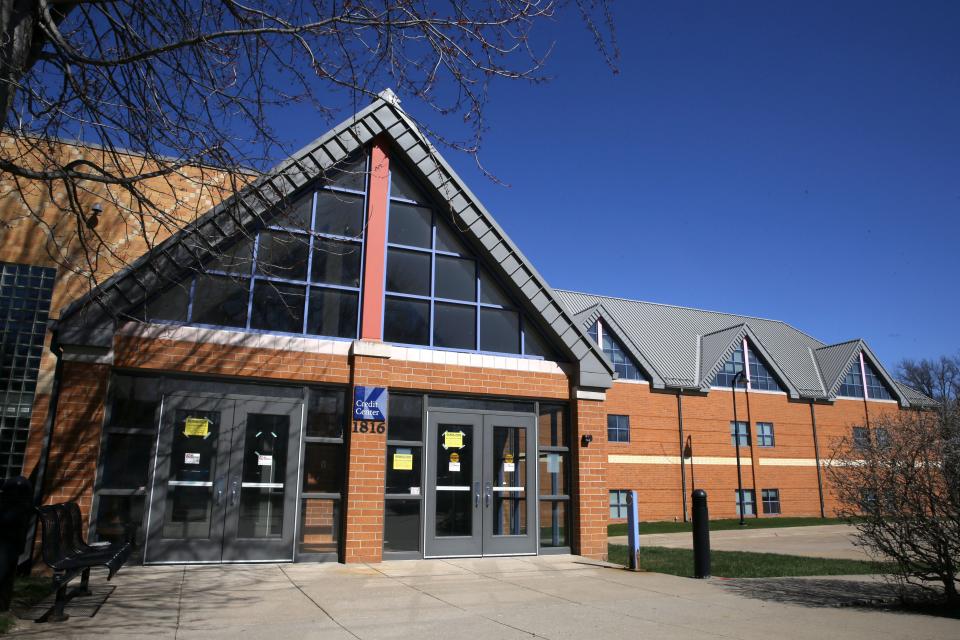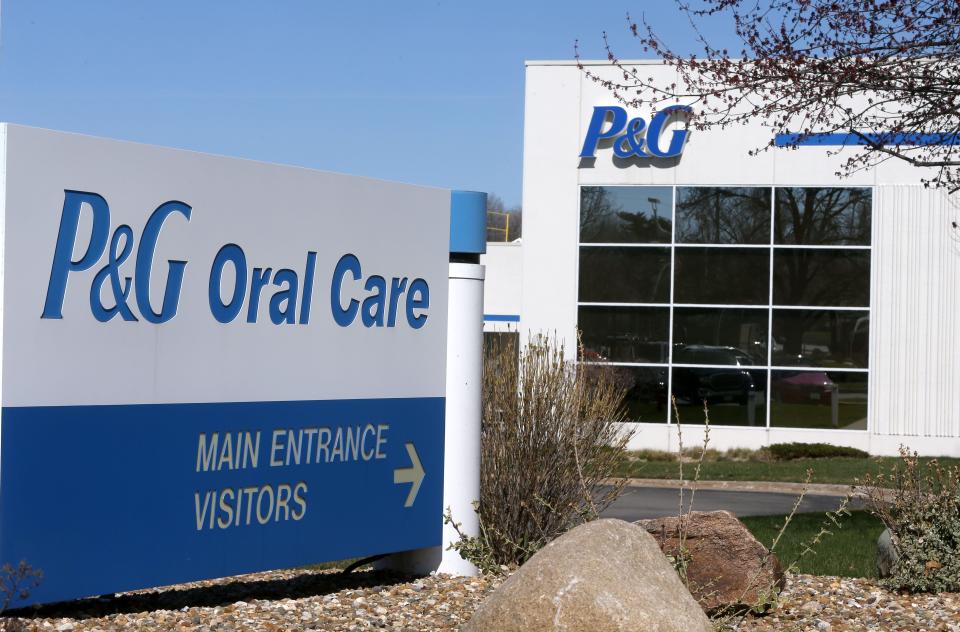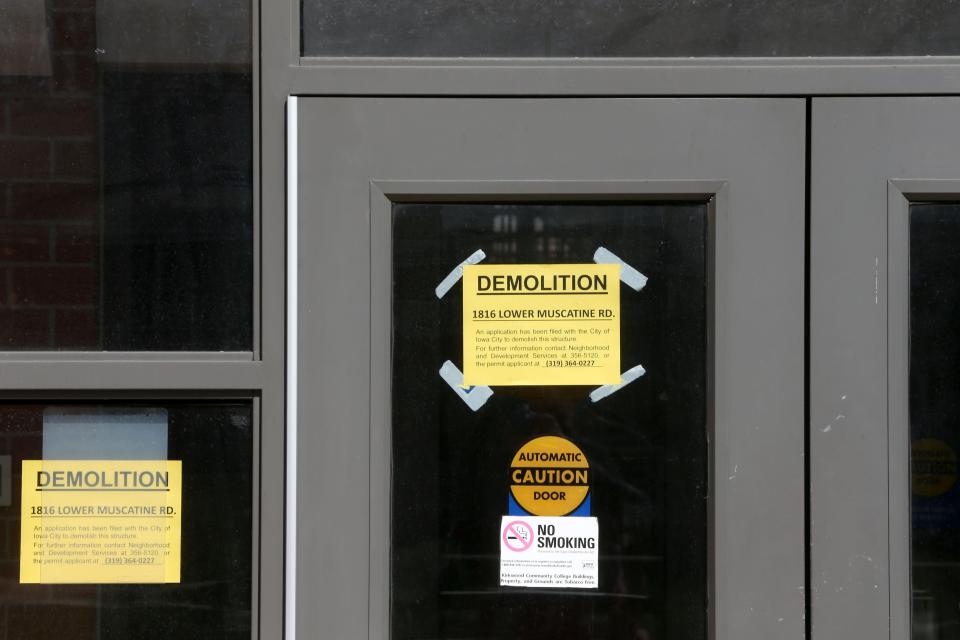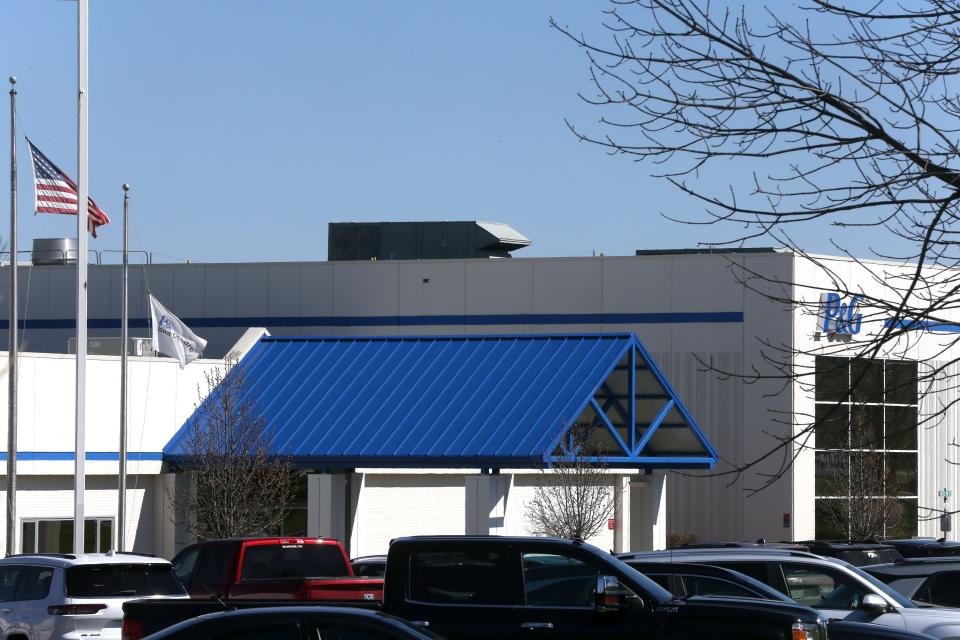Iowa City City Council approves rezoning of ex-Kirkwood campus as air quality concerns arise
The Iowa City City Council moved forward with a plan to rezone the former Kirkwood Community College Iowa City campus during its meeting Tuesday, March 19.
Procter & Gamble, which operates the nearby Oral-B Oral Care facility, purchased the Kirkwood campus in November 2023 for more than $6 million and plans to demolish the building.
Kirkwood's satellite property, located at 1816 Lower Muscatine Road in Iowa City, sits adjacent to Oral B’s existing operation and served students in the area for 32 years. The college announced plans to sell off its Iowa City property and move the remainder of its operations to the Kirkwood Regional Center at the University of Iowa in Coralville in early 2023, noting that the school will save roughly $400,000 annually in operating costs.
The City of Iowa City approved the rezoning for "technical or light manufacturing" despite local concerns about a reduction in air quality if the Oral-B facility expanded.
The council voted 6-1 to approve a first consideration, setting the stage for overall approval of this rezoning. Councilor Mazahir Salih was the lone "no" vote and throughout discussions, she consistently advocated for the postponement of this decision until P&G finalizes its plans for the site's future.
Once passed by the council two additional times, the area will be rezoned from a neighborhood public zone to a general industrial zone.
The current P&G facility is also zoned general industrial.

Oral-B uncertain on timeline, nature of expansion
Oral-B has filed an application with the City of Iowa City to demolish the Kirkwood building, according to notices posted on several of the doors.
The Iowa City facility includes multiple buildings on a 6.3-acre lot. It was built in 1990 and first opened to students in 1991. The Press-Citizen previously reported that its assessed value was $673,380.
Oral-B’s engineering director, Joe Townsend, said there is "no concrete plan" for the future of the Kirkwood site, but if they do expand to the property, it would likely be within the current building spaces. Townsend said P&G is knocking down the existing facility as they develop future plans.
More: Paula Scanlan, former teammate of trans swimmer Lia Thomas, to speak at UI on March 25

Council majority says rezoning won’t fix perceptions
Several councilors agreed that residents were worried more about air quality and not rezoning.
“I don’t think the issue is this rezoning, and I’ve actually been convinced that the issue is not Procter & Gamble, and I especially don’t think the issue is the Oral-B plant,” Bergus said. “And that is because, as councilor (Josh) Moe said, we have access to information and every one of us up here has taken hours listening to all different perspectives and taking in information.”
The city council toured the Oral-B facility ahead of Tuesday's vote. Alter asked for a more critical look at some of the data provided, saying the EPA looks at a wide area beyond the P&G facility, which includes a large stretch of industrial land to the southeast.
“Some of this information that seems causal is also indicative of a larger area,” Alter said. “It’s not got P&G as a bright red warning sign.”

Community is concerned with local air quality
A few community members spoke during Tuesday's council meeting and said that if Oral-B builds on the Kirkwood campus, it will impact the already poor conditions for area residents who are "lower-income," more likely to be non-white, and "less healthy" than the city at large.
More than 12,000 people live within a one-mile radius of the current Oral-B facility, according to the EPA. People of color make up 29% of that area and low-income people amount to 30% of that population group.
Some residents cited past Environmental Protection Agency evaluations of the nearby area, which found that the Oral B facility is a small-quantity generator, meaning that it creates between 100 and 1,000 kilograms—or 220 to 2,200 pounds—of hazardous waste per month.
“If you can smell acetone in the air to the extent that it causes massive headaches, that is not a ‘minor air pollution,’ that is a health care concern,” a resident who identified themselves only as Nix told the council. “...This rezoning proposal is absolutely abhorrent, extremely harmful and I’m disappointed that this council is even considering approving it, given the amount of public disapproval.”
Townsend said Oral-B uses 1-2 gallons of acetone per month for cleaning purposes. Councilor Megan Alter said she called a nearby nail salon, which said it uses twice as much acetone as Oral-B in an average month.
“We are a minor source emitter from an emissions standpoint within the Iowa City area for all three P&G manufacturing facilities,” Townsend said. “When you take a big picture look at Iowa City itself, there are four major sources — (emitters of) greater than 100 tons — and then there are 19 minor sources. So, we are three of those 23 potential sites across the city of Iowa City.”

The EPA also identifies different types of waste stored at the current Oral-B facility, including barium, chromium, lead, benzene, and more. The quantities are not specified.
The Iowa City City Council will investigate local air quality concerns and will address them at its next work session on April 2.
Ryan Hansen covers local government and crime for the Press-Citizen. He can be reached at [email protected] or on X, formerly known as Twitter, @ryanhansen01.
This article originally appeared on Iowa City Press-Citizen: Oral-B rezoning gets go-ahead as community shares air quality concerns
Solve the daily Crossword

